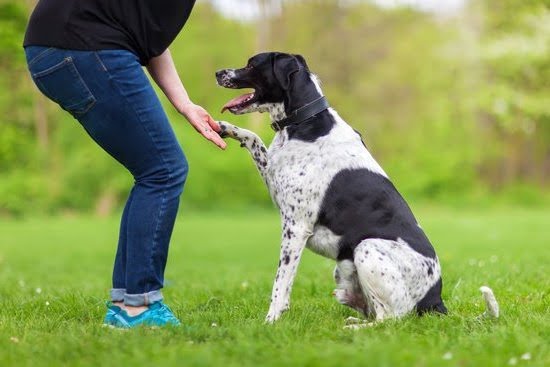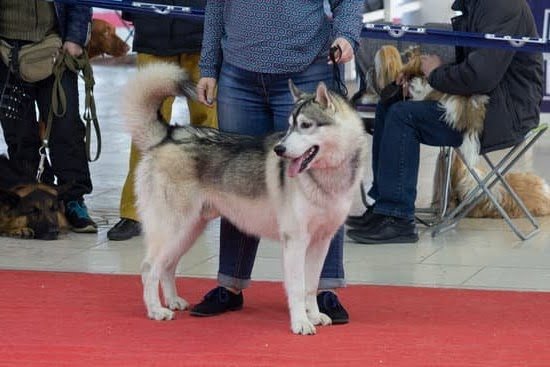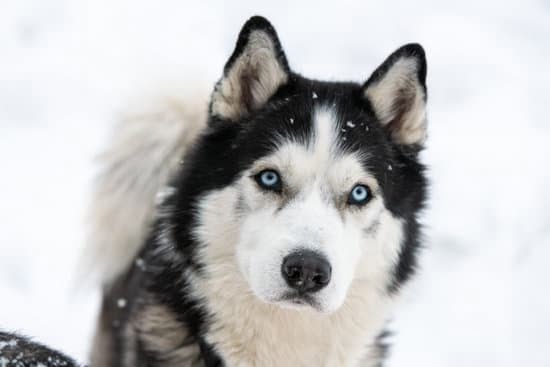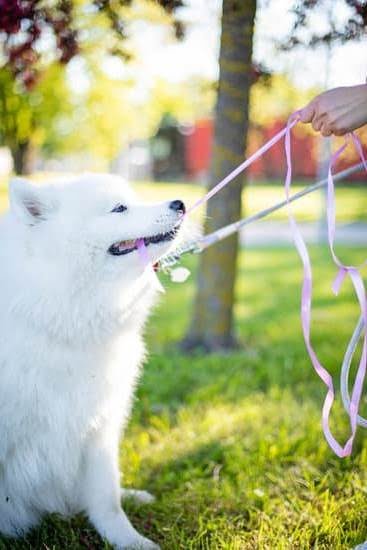Introduction
Training a bird dog can seem like a daunting task, especially if you’ve never had one before. If you plan on getting a bird dog, it’s important to know when is the best time to start training. The answer to the question “what age should I start training my bird dog” depends both on the breed and individual in question.
Generally speaking, puppies can begin socialization and simple obedience at about 8 weeks of age. Some breeders may suggest waiting as long as 12 weeks for certain breeds before beginning formal training. During this period, it is important that puppies are exposed to a variety of new sounds, people and animals in diverse environments, as well as being taught basic commands (e.g ‘sit’) and manners (e.g not jumping up on things).
For breeds with high prey drive (for example Pointers or Setters), formal training could begin between 4-6 months of age when their attention span has developed enough for proper instruction,. During this stage, owners should focus on teaching foundational rules such as quiessence, steady retrieves and basic direction commands (such as ‘heel’ and ‘come’). Depending on the breed and aptitude of the pup these techniques usually take several months to teach effectively.
Once they understand these basics then more specialized area-specific learning such as scenting out birds can be undertaken around 6 months old onward . All the while integrating neat little treats alongside each step in their training regimen to keep them motivated – this reward reinforcement helps guide young dogs into more advanced stages of learning where they can better hone in their special abilities for hunting tasks. Hunting drills using feathered lures or “cold blinds” are also useful ways to sharpen skillsets during this phase of their development.
Attending classes dedicated to gun dog lessons from skilled professionals is highly recommended; having an impartial third party observe your interactions with your pup ensures better boundaries are kept when developing tasking goals and ensures necessary corrections aren’t overlooked by overly connected owners trying to do too much with too little guidance themselves which often leads down very rogue pathways! Ultimately having a clearly defined structure will help support any gun pup owner in achieving strong results in no time!
Advantages of Starting Training at the Right Age
Starting to train your bird dog at the right age has many advantages. First and foremost, the earlier you begin, the easier it is for your dog to learn commands and habits while they’re still young and able to absorb new knowledge quickly. This helps create a strong foundation of obedience that will carry over into their adulthood. Additionally, puppies have shorter attention spans than adult dogs, meaning that you can use shorter training sessions to keep their interest throughout the process. If a pup masters a small number of basic commands such as ‘sit’ or ‘down’ early on in their training, this builds confidence in them as they become familiar with how to take instructions from humans and aids them in following additional commands more easily. Finally, ensuring birds are exposed properly to the sound of gunfire helps prevent gun-shyness; this needs to be done cautiously but may start as soon as 6-8 weeks old so beginning early allows plenty of time for proper gradual introduction to loud noises.
What Age is Best for Bird Dog Training?
Starting bird dog training at the right age is key to ensuring your new pup can develop the skills needed for bird hunting. All dogs, regardless of breed, need to start their training early in order to get the best results as an adult dog – usually somewhere between 8 and 16 weeks. At this point, puppies are typically old enough to understand basic commands and often have enough energy to make it through a long training session focusing on retrieving, pointing, scenting and obedience. It is important not to start too late though – may puppies will begin losing interest after five months of age and if you wait until the six-month mark or later you may find that your bird dog doesn’t quite reach its full potential as a hunter. After all, it takes commitment from both owner and pup so having a young pup who is eager and attentive makes learning a much easier task! Talk to your vet or professional trainer if you have questions about when exactly you should start training your bird dog puppies.
Guidelines for Standardizing and Laying Out Training Goals
The most appropriate age for a bird dog to begin training is typically between 12 and 16 weeks old. At this age, the puppies are already displaying physical strength, greater intelligence, and an enthusiasm to learn which makes it easier for the trainer.
If you are starting with a puppy that is more than 16 weeks old, adjust the training goals so that they will include foundations such as basic obedience commands and obedience course negotiating. The goal should be able to introduce your pup to real game scenarios in order to test their ability and skills so far.
Once you have standardized your bird dog’s training routine, ensure that it includes both mental stimulation and physical exercise activities. Training methods should include play and reward systems so that your pup can develop good behaviors; positive reinforcement made up of verbal praises or treats should be used to encourage and reward correct behavior. Additionally, commands such as sit, stay or come when called will help teach desirable life skills for your pup in their daily lives.
Finally, create consistent routines for meal times, nap time and potty time in order to make sure that your bird dog remains disciplined and healthy, helping him reach his full potential through rigorous practice sessions.
Preparing for the Right Start
Starting to train a bird dog is an exciting prospect, but it requires patience and consistency in order to ensure success. The ideal age to begin training your dog depends on the breed and the level of obedience desired. Generally speaking, however, most experts agree that the optimal time to start is between 6 and 7 months old. At this point, puppies are old enough to be taught commands, but still young enough to form good habits and learn quickly.
Before beginning formal training sessions with your puppy, it is important to set yourself up for success by enlisting the help of an experienced trainer. Training a bird dog requires specialized knowledge, as well as experience working within their particular breed. Experienced trainers can greatly reduce the learning curve for novice owners, give advice on what type of specific breeds may be best suited for them, and provide additional resources such as books or websites that can be used for further information. They can also guide you in finding appropriate local classes or clubs dedicated to training birds dogs so you’ll have access to other knowledgeable people that also share your interests. As any bird dog owner will tell you — having an experienced trainer on their side is essential and will help ensure training success later down the road!
Challenges of Early Training
Early puppy training can be both beneficial and challenging. Some of the challenges include over-stimulation, regular repetition to build understanding, and managing distraction for successful learning.
Over-stimulation is a common challenge with early bird dog training, especially in social situations where the pup can become overwhelmed trying to pay attention to its handler while taking in all of the new external stimuli. This can lead to difficulty focusing, which will impede progress on primary obedience training goals like heeling or recall. It’s important to provide frequent breaks from chaotic environments that puppies don’t yet have the maturity and focus to handle effectively.
Repetition is also key when establishing commands with a young pup; it’s important to maintain consistency and fairness so that they don’t become frustrated or confused when they’re not able to quickly grasp what is being asked of them. By replying the same command multiple times in consistent manners and rewarding exemplary performance strengthening habits their comprehension will grow quicker than if each repetition was solely negative reinforcement.
Finally, distractions can easily derail education efforts with many young dogs so it’s important to remember to focus on what you want them paying attention to rather than chastising them for curiosity. If special sounds – i.e., whistles or clicks – work best for your pup use those as a controlled method of bringing focus back from distraction quickly without taking away from positive reinforcement achievements until full understanding has been achieved.
In summary, some challenges that come with early bird dog training include over-stimulation, regular repetition for understanding, and managing distractions for successful learning but these issues can all be managed successfully if tackled processively from an early age!
Monitor and Track Your Dog’s Training Progress
It is recommended that bird dog training should start as early as possible, typically 8-10 weeks of age. This is because this is when the pup is old enough to be able to retain new information and focus on these behaviors. Once training starts, it’s important to monitor and track your dog’s progress in order to identify areas where they may need improvement or reinforcement. Taking careful notes during each training session can help ensure that your dog understands what you expect from them and that you can see their growth over time. Additionally, keeping a log of each training session can help provide a timeline for reinforcing targets that have been previously taught and for tracking concepts the pup needs additional work on. Tracking your bird dog’s progress also provides an indication of when the pup is ready to advance onto more difficult concepts or more difficult terrain types.
Supplementing Your Dog’s Training
It’s never too early to start training your bird dog. Puppies should begin basic socialization and obedience training as soon as they come home. This will help acclimate the pup to their new surroundings, and lay the foundation for further more specific training down the road. From four months of age, things such as crate training, recall, housebreaking and basic commands can be taught by a professional trainer. During this time, you can also begin introducing the pup to birds; however keep it short and light with lots of praise for success. Once the pup turns six or seven months old, you can start formal hunting lessons for scent work, water retrieving and field obedience which are required for hunting upland game birds. By nine months of age your bird dog should have a knack for these skills and should be ready to accompany you in your next hunt! Regular maintenance practice is important thoughout their lifetime to reinforce these learned skills. Even the most experienced bird dogs can benefit from regular brush up lessons!
Final Thoughts
It’s never too early to start training your bird dog. In fact, the younger they are, the easier it is to create a solid foundation and introduce them to new commands. Puppies aged 6-12 weeks are just starting to understand basic commands and so you should begin by introducing them through verbal and body language cues. This will help lay the groundwork for more difficult tasks later in their training. As your pup grows up, you can focus on mental and physical activities such as fetching, water retrieves, scent tracking, obedience drills, etc., that will challenge their skillset and keep them mentally stimulated. While birds will most likely be introduced to your puppy at around 12 weeks of age or older, introducing them with proper safety precautions in place is crucial for effective bird dog training. It’s important that these initial interactions are positive experiences for your dog; pairing games like hide & seek with verbal praise when they find the bird reinforces good behavior and builds a positive relationship between pup and trainer. With consistency, patience, positive reinforcement and patience some of the most complex commands can be taught over time. The success of any bird dog is ultimately determined by providing appropriate challenges while praising consistent successes; using positive reinforcement protocols your pup will learn quicker than traditional methods while also maintaining an intrinsic enthusiasm throughout his life as a well-trained bird dog.

Welcome to the blog! I am a professional dog trainer and have been working with dogs for many years. In this blog, I will be discussing various topics related to dog training, including tips, tricks, and advice. I hope you find this information helpful and informative. Thanks for reading!





